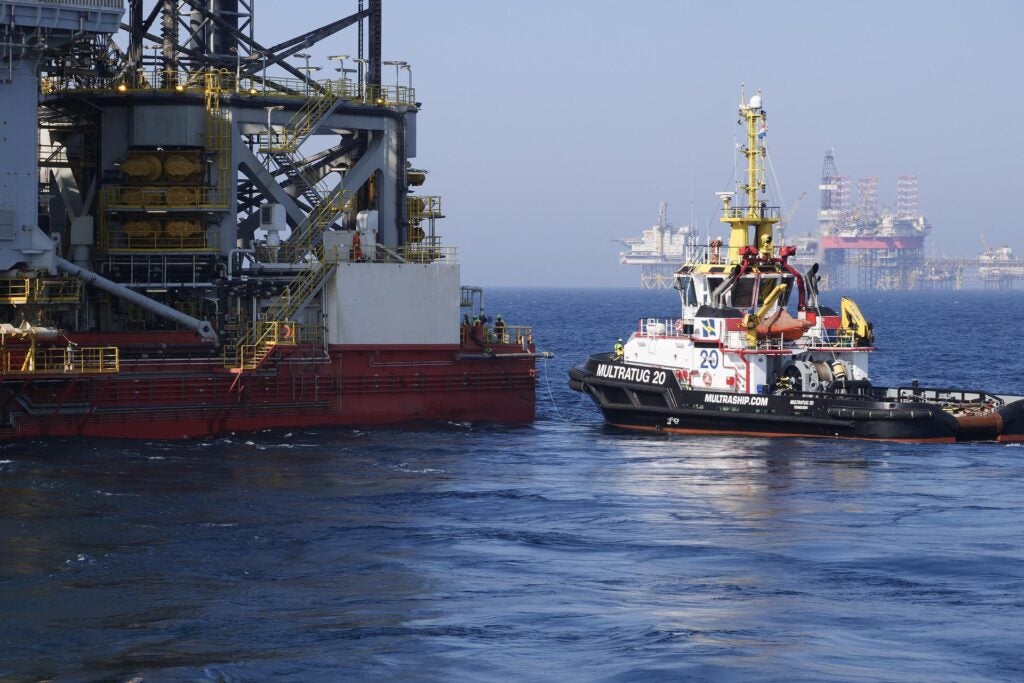Oil exploration across the Norwegian continental shelf is evolving. As companies investigate oil supplies in ever more northerly regions and increasingly deep waters, HSE legislation needs to keep up.
On top of this, factors such as ageing infrastructure and a diversifying range of operators and licensees in the North Sea present challenges of their own. The Petroleum Safety Authority Norway (PSA) is only too aware of the implications of these changes and director general Magne Ognedal is confident that the independent regulatory body can contribute to the necessary development of safety requirements across the industry.
Created as an independent government regulator on 1 January 2004, the PSA is responsible for issuing requirements on technical and operational safety, including emergency preparedness and the working environment in all phases of petroleum activity from planning and design to construction and removal.
The Norwegian regulator also has the authority to take specific decisions in the form of permits and consents, orders, enforcement fines, halting operations, prohibitions and dispensations. “On a company level, we suggest improvement points and follow-up to ensure that action is taken. Only once in a while do we need to use our regulatory tools and come out with formal requirements,” says Ognedal.
Central authority
See Also:
Through its own audits and in cooperation with other regulatory authorities in the HSE area, the PSA ensures that petroleum activities are supervised in a unified manner, as well as providing information and advice to the players in the industry. “As I see it,” Ognedal continues, “the industry needs to keep up the good work to ensure that equipment, drilling rigs and so on are fit for purpose and companies need to conduct their activities according to the regulations in force as well as their own standards.”
How well do you really know your competitors?
Access the most comprehensive Company Profiles on the market, powered by GlobalData. Save hours of research. Gain competitive edge.

Thank you!
Your download email will arrive shortly
Not ready to buy yet? Download a free sample
We are confident about the unique quality of our Company Profiles. However, we want you to make the most beneficial decision for your business, so we offer a free sample that you can download by submitting the below form
By GlobalDataBut Ognedal also acknowledges that the changing face of operations in the region means some things do need to change. “The industry has been moving northwards and into deeper waters and this represents challenges,” he says. “There are working environment issues that need to be addressed as you go further north; as it gets colder, there is limited daylight so darkness is one such concern.
“There are also emergency preparedness issues. For example, do we have quality survival suits for everyone? Also, as companies go further from the shore, there are helicopter issues: is it necessary from an emergency point of view to have the possibility for refuelling on the way?”
For Ognedal these issues are manageable, and the greatest challenge facing the PSA is the increasing number of operators and licensees in the region, now nearing 60. “The main question is to make sure that they all have the necessary competence and capacity to handle the operations they want to engage in,” he notes. “How they organise themselves to achieve that is not really our concern, as long as responsibility is clear and according to regulations.”
The PSA can, however, issue advice. Indeed, one of the main responsibilities of the authority is to provide information and advice to companies and unions. “All companies, including minors, need to have basic competence and capacity; they can hire a lot of expertise, but they need to be able to manage whoever they bring in,” Ognedal explains.
A ‘generation change’ is also set to impact on the industry, according to the PSA’s director general. “Lots of wellqualified people are leaving the industry and newcomers are replacing them,” he notes. “But the question is: what does an organisation do to ensure that it’s competent following the departure of so many employees?
“They need to be trained, they need to be taught the lessons experienced employees have learnt over time and they need to be equipped with information about the important historic issues. They can also learn from mistakes that have been made and what is happening around us, such as the disaster in the Gulf of Mexico.” Accidents still happen, as the BP spill clearly demonstrated. “We haven’t got details or verified information about what went wrong,” says Ognedal, “but we are hoping it will be available soon so we can take it on board, digest it and see what we can learn from it.”
Level playing field
Another key issue that has been discussed within the PSA is the need for a ‘hierarchy’ of offshore players: should small companies be expected to have the same level of expertise as larger ones? Ognedal simply dismisses such a theory: “Standards shall be kept and used by everybody – that is a requirement. The larger companies with the larger capacities should be at the forefront when it comes to taking improvement initiatives, but the others have to follow.”
When it comes to ageing installations, for example, everyone follows the same rules. “Structures have a design life,” says Ognedal. “And when they reach their design life, we need to decide whether it’s safe to use these facilities further. Here in Norway, we have a system where we give consent to ‘life extension’. When companies apply for this, they need to describe any improvements they want to make, such as strengthening work, to ensure that the life extension is a safe one. This is the same for all offshore facilities including pipelines and subsea wells.”
While Ognedal acknowledges that ageing infrastructure is becoming an increasingly significant challenge, the release of hydrocarbons is priority number one for the PSA in 2010. “We have a tripartite collaboration, a working relationship, between companies, unions and ourselves,” he explains. “Coordination is key, and based on our overview of how the industry is doing, we suggest courses of action. At the moment, there are too many hydrocarbon releases and that needs to be fixed. Who’s the owner of the problem? The industry. So they need to fix it.”
The amount of hydrocarbon releases is ‘negative and unacceptable’, according to Ognedal, and, therefore, the industry needs to start working seriously on the issue. “We want no hydrocarbon releases that are not planned for,” he explains. “There was a big industry project some years ago, which began to deal with this and resulted in a clear, positive improvement. Then they relaxed a bit and it went wrong; now they need to take action again.”
It’s a two-way street for one of Norway’s most respected safety experts – the PSA formulates the regulations while companies’ management must do what is necessary to ensure that their organisations follow procedures. “They must use the right equipment in the right way, maintain everything in a good state of order and when they see improvement points, for example following an investigation after an accident, they have to carry them through.”
Holding up his end of the bargain, Ognedal has been working hard to ensure that PSA’s regulations are as comprehensible as possible. “We’ve just created a new set of regulations that will enter into force on January 1, 2011,” he says. “There are not very many changes, but requirements have been made clearer and guidance has been updated.”
The majority of changes that have been made are working towards making offshore and land activities increasingly integrated. The new HSE regulations create a common framework for operations both offshore and at land-based plants, giving the PSA a stronger basis for its follow-up activities. Ognedal has no doubt that the landscape is changing, with issues ranging from ageing infrastructure to an ever diversifying range of industry players. But the PSA is well placed to deal with the situation, thanks to its world-renowned safety level.
“Given the tragedy that has just occurred in the Gulf, the main point that needs to be stressed is that the safety level we have is a safety level we have worked hard to get,” the director general concludes. “It’s necessary to work hard every day to keep it up and it cannot be taken for granted.”






